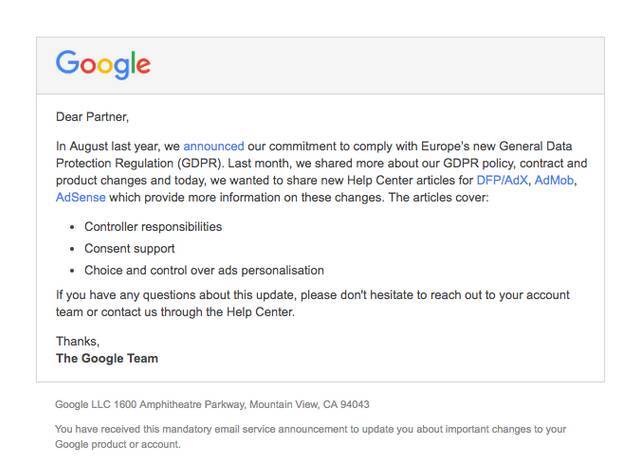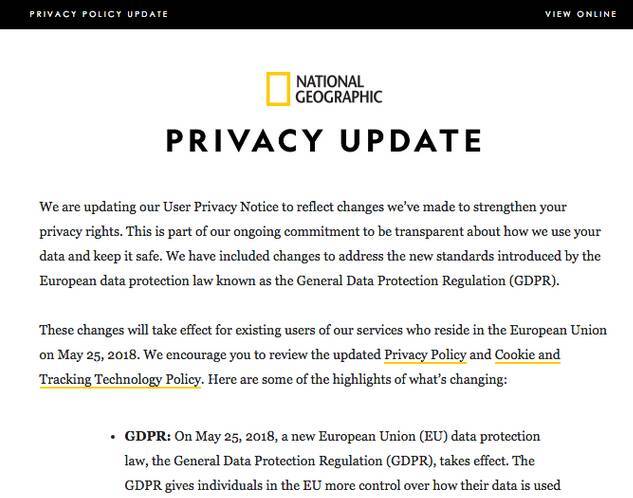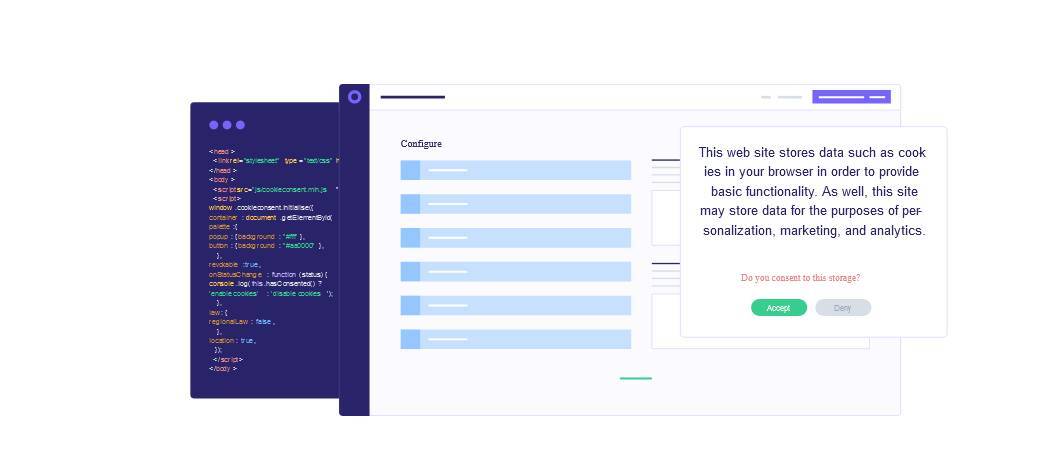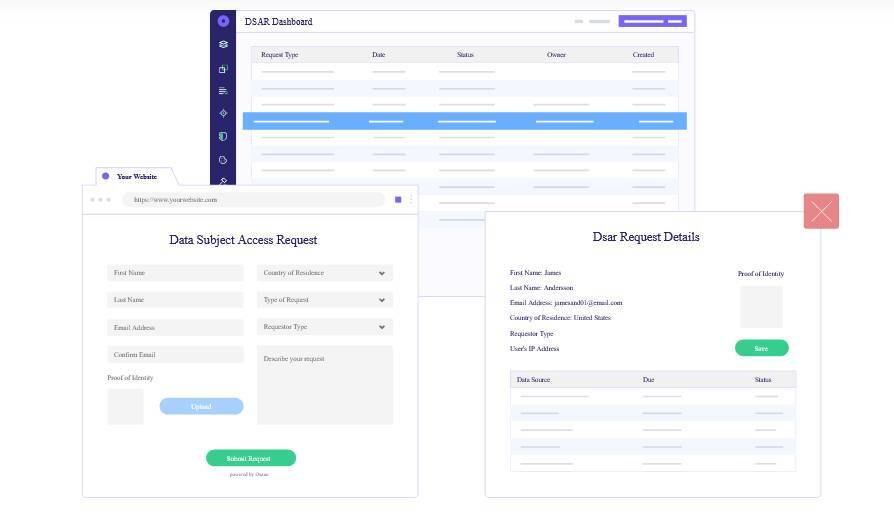More than 90% of the world’s data has been generated within the past two years, and most of this data is derived without consumer’s consent.
These data were mostly generated by customers’ most preferred companies, by the simple acts of filling forms or making an online purchase.
While these vital consumers’ data have worked to help companies create personalized experiences for their customers, the increasing number of data breaches and intrusion of consumers’ privacy has led to the emergence of privacy policies like the GDPR and CCPA.
With these privacy policies, consumers are in complete charge of their data privacy and can decide which company they want to hand over their sensitive data to.
Also, every company in compliance with the GDPR and CCPA is obligated to protect its consumers’ data from theft, misuse and exploitation, which provides adequate security for consumers’ critical information.
Are you a tech company wondering why it’s important for you to comply with the GDPR and CCPA privacy policies? This article will go into the details about GDPR and CCPA and explain the top reasons to be in compliance with the policies.
Let’s begin.
What is GDPR and CCPA?
The GDPR, General Data Protection Regulation, and the CCPA, California Consumers Privacy Act are privacy policies aimed at safeguarding consumer’s right to privacy. The GDPR is a set of regulations in the European Union law on data protection and privacy.
It came into effect on May 25, 2018, and its core objective is to give consumers control over their data. Its regulation consists of the terms and conditions that relate to the collection and processing of consumer data within the EU and its environment.
However, the GDPR’s regulation isn’t restricted to companies within the EU. It also affects enterprises and organizations that provide goods and services to individuals residing in the EU.
On the other hand, CCPA is equally a state law that promotes consumers’ rights and privacy. However, in this case, the law is binding to companies in California and companies that offer products and services to California’s residents.
Effected on January 1, 2020, CCPA consists of the procedures to data collection, the sanctions that follow non-compliance, and consumers’ new rights to securing their data.
However, while GDPR and CCPA are both privacy regulations, several factors differentiate them. Later, in this article, we would compare GDPR vs. CCPA. But first, let’s discuss why you should care about being in compliance with GDPR and CCPA privacy policies as a tech company.
Why is GDPR and CCPA compliance important for tech companies?
The GDPR and CCPA enforce vital requirements on tech companies involved in processing and collecting personal data. It ensures that tech companies monitor the type of personal data they collect from their users and how they use it.
But why should tech companies take the GDPR and CCPA’s compliance seriously? Is it a win-win experience, or does it favor the consumers alone? Let’s find out below.
1. It helps you build trust
With the growing population of data breaches, consumers look to do business with companies they can trust. Complying with the GDPR and CCPA privacy policies gives your consumers the peace of mind that drives them to trust you with their most sensitive data.
By complying with these privacy policies, you put your consumers in control of what information to share with you. This makes them feel safe because they don’t have to worry about you collecting any information about them without their permission.
In addition, compliance with the GDPR and CCPA means you would provide an adequate measure to ensure their data is well protected from misuse or any form of third-party intrusion.
If you want to build trust with your customers in today’s digital world as a tech company, then it’s important you show your customers you care about their privacy by being in compliance with their privacy rights.
2. Avoid fines and sanctions
Complying with the GDPR and CCPA regulations can help your tech company avoid the penalties and fines that come with non-compliance.
Honor the GDPR and CCPA’s consumer rights by allowing your consumers to exercise their rights to privacy effectively. Notify your users whenever you want to obtain their information.
Give your consumers the right to opt-out of transactions that involve their sensitive data whenever they want.
Conduct internal inspection to know how your customers’ data come in and go out of your organization. Taking these steps would help you maintain compliance with the GDPR and CCPA policies to avoid penalties and sanctions that could hamper your business’s growth.
3. It helps with efficiency
Although the GDPR and CCPA’s privacy policies are about protecting the customers’ rights, they also end up in favor of companies in compliance. One of the many benefits is boosting an organization’s efficiency.
Being in compliance enables you to streamline the data you collect from your customers, focus on the data that’s really important and necessary to the services you provide.
This helps you maximize time because you can avoid navigating through unnecessary information and focus on what really matters.
More so, compliance enables you to pay close attention to how you source your data. With close monitoring, you can be certain the information you acquire are from real, authentic customers to help drive actual results.
4. Build a positive brand image
Compliance with the GDPR and CCPA privacy policies helps alleviate the risks of exposing your customers’ information to unauthorized third parties. In addition, it prevents data breaches that may portray your company as incompetent.
It also depicts that you follow the rules and regulations that safeguard your customers’ privacy; thereby showcasing your professionalism and interest in abiding by the law.
The limited chances of being in the news for data breaches enhance your reputation as a brand, retain existing users and attract new users.
5. It gives you an edge over your competitors
As a tech company complying with the GDPR and CCPA policies, you have a great edge over your competitors. People prefer to do business with organizations that put systems in place to keep their transactions secured.
So, if your competitors don’t comply with the GDPR and CCPA rules, there is a high chance you will gain a competitive advantage over them.
5 Things to know about GDPR and CCPA
Here we discuss how GDPR and CCPA differ and in what ways they are similar. This will help you make accurate choices when you proceed to implement them in your company policies.
1. Who should care about the GDPR and CCPA?
The GDPR policy affects all kinds of businesses and organizations that do business with residents within the EU, from tech companies to ecommerce businesses, public organizations, and more.
However, CCPA affects specific businesses in California. This includes businesses with the following requirements:
- Gross revenue of $25 million
- Collects the data of 50,000 consumers in California
- Generates 50% of their annual revenue from the data collected
2. Type of data
The GDPR and CCPA privacy cover different areas of personal data. For example, GDPR’s policy covers all aspects of personal data except if the data was used by an individual for a personal purpose or was unautomated.
However, the CCPA privacy regulations don’t offer protection for specific data types. These data types range from medication information in the CMIA (Confidentiality of Medical Information Act) to personal data in the DPPA (Drivers’ Privacy Protection Act) and more.
3. Implementation of security measures
While GDPR requires companies in compliance to take specific measures to secure their consumers’ data, CCPA does not.
CCPA, on the other hand, gives consumers the right to take legal actions against a company in case of a data breach.
4. Opt-out rights
The GDPR and CCPA’s opt-out are applicable in different situations. For example, with the GDPR, consumers cannot opt-out of sales of their personal data but have the right to opt-out of processes that involve using their personal data for marketing processes.
With CCPA, consumers have the right to opt out of the sales of their personal data. Companies must request permission to sell personal data from their consumers, and consumers have the right to accept or decline.
If a consumer declines, then the company has no right to make a request again until twelve months later.
5. Consent age difference
The consent age differs between both policies. For instance, the consent age for the GDPR policy is sixteen years. Parents consent for their wards under 16, and the company is required to request privacy notice under the GDPR policy.
The consent age for the CCPA policy, however, is 13. Companies are also expected to follow the regulations under the federal Children’s Online Privacy Protection Right (COPPA) under the CCPA policy.
Conclusion
This article explained the major reasons the GDPR and CCPA are critical for tech companies.
These reasons include avoidance of penalties and fines, establishing trust with their users, creating a positive perception for the company, and gaining an edge over their edge.
Furthermore, tech companies can show their competence and professionalism by complying with the GDPR and CCPA’s policies. We hope you enjoyed reading this blog post. Thank you for your time.
TechnologyHQ is a platform about business insights, tech, 4IR, digital transformation, AI, Blockchain, Cybersecurity, and social media for businesses.
We manage social media groups with more than 200,000 members with almost 100% engagement.











































